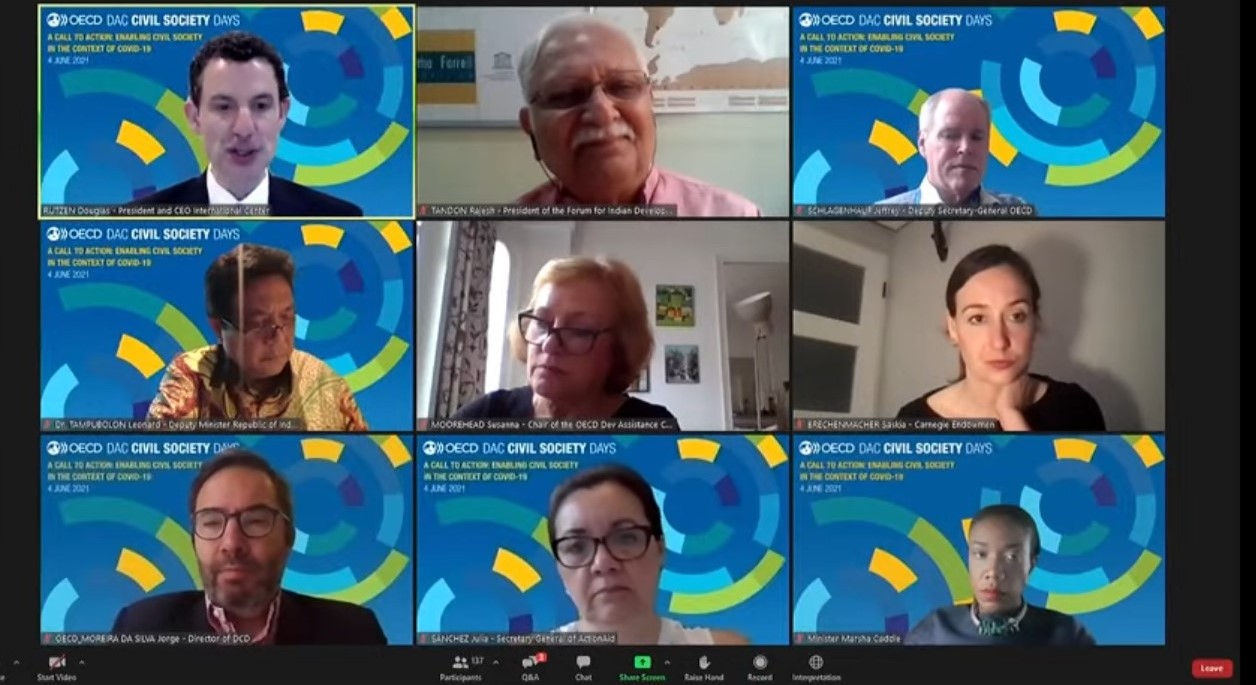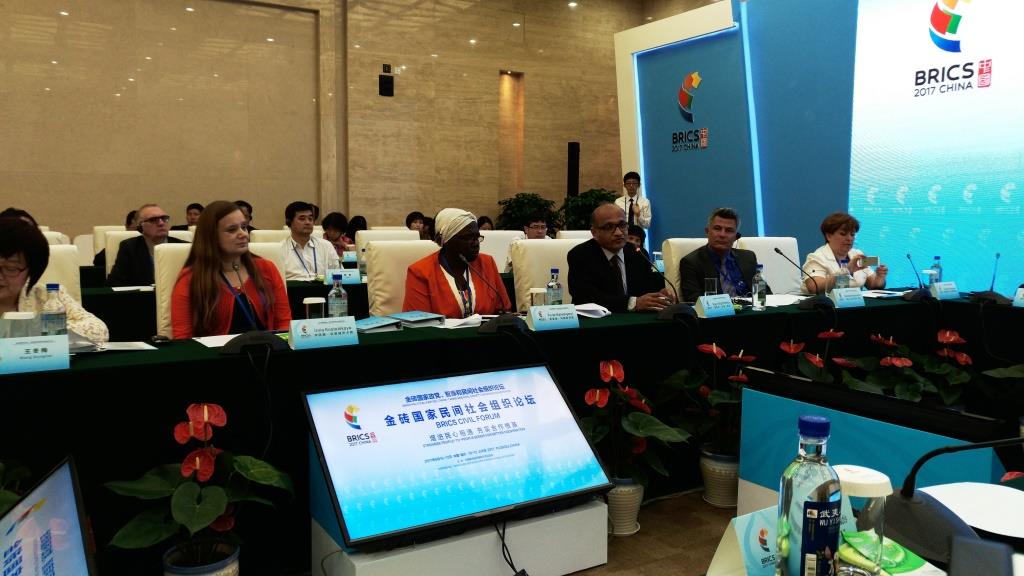By Niharika Kaul and Muskan Chawla:
At a recent OECD event on enabling civil society in the context of COVID-19, Jeffrey Schlagenhauf, Deputy Secretary-General of the OECD, categorically stated that the pandemic has had a catastrophic impact on people’s lives and that “people are getting really hurt”. Responding to the crisis, civil society played a critical role in helping individuals and communities around the world survive at the ground level.
Civil society refers to humanitarian organisations, community-based groups, informal networks of individuals, and groups working towards social, economic, and other forms of development for excluded, vulnerable communities. The emergence of the term ‘civil society’ has a long history, but can briefly be understood in the context of India’s post-Independence era. In the 1960s, several voluntary organisations emerged in response to relief rehabilitation measures. Many such organisations began experimenting with different approaches to the problem of development. The struggle for collective action of vulnerable communities for sustainable social transformation needed a long-term strategy for community-based development. Voluntary organisations became a crucial support to government agencies to implement public programs.

Such support by civil society was necessary from the early days of the COVID pandemic. These organisations have been an important source for demystifying myths about the virus and promoting COVID-appropriate behaviour. They helped provide valuable information about government health policies and protocols to communities by translating them in local and regional languages. They helped bridge the digital divide, enabling local communities and migrant workers to access government welfare schemes. When the second wave engulfed India, health infrastructure collapsed with unavailability of oxygen cylinders and hospital beds, overworking doctors and nurses. It was civil society (individuals, community-based groups, and local non-governmental organisations) that helped citizens procure medicines, distributed food to struggling families, helped informal women workers get sanitary pads, and arranged transport for the sick and dying. In other words, civil society was an indispensable part of the response and recovery measures to battle the crisis created by the pandemic.
Despite its significant role in mitigating the damage caused by COVID-19 to the lives and livelihoods of millions of people, civil society around the world has faced obstacles to being accepted by governments as an arm of support. Across countries, COVID-19 lockdowns have been used to curb civil and political rights of civil society. Several human rights, including free speech, were restricted, especially of those who were critical of the government on social media and other platforms. The world of ‘fake news’ tried to dilute the significance, actions, and questions raised by civil society. Civil society has faced these curbs and challenges — at global, national, and local levels —long before the pandemic, and they expect to be confronted by these challenges even when the pandemic eases.
How can governments harness the enormous capacities civil society brings and collaborate with it, both in the short run (as the pandemic continues to disrupt lives and economies), and in the long run (to address socio-economic challenges)?
First of all, the changing nature of civil society needs to be accounted for. With the emergence of new technologies and digital platforms, civil society has become a lot more dispersed. Smaller, individual-led groups are emerging in an informal manner, which also need to be seen as change-makers and important stakeholders in development.
Second, trust-building needs to be given renewed importance and prioritised by local, state and national governments in order to develop sustainable grassroots solutions. Government policies and protocols need to be framed through decentralised, democratic mechanisms where practitioners, civil society groups, and local residents are all part of the change-making process. In addition, legal regimes regulating civil society need to ensure that they hold them to account, yet foster and facilitate their functioning instead of stifling them.

Several global civil society leaders who came together at the OECD event on June 4, 2021, made calls for actions to enable and strengthen civil society:
Implementing these calls for action needs cooperation and collaboration between governments, policy-makers, and civil society members, working together as equal and relevant partners. Mutual trust and collective action by civil society and governments are the foundation for addressing the challenges that affect humanity.
PRIA’s MobiliseHER team traveled to Bangalore during the week of June, 10 – 14, 2024. The aim of the visit was to gain relevant insights into the civil society ecosystem in Bangalore and meet different organisations to understand the city through a lens of gender and inclusive mobility.
Working at PRIA, often leads us to various cities across the country. Each trip is an opportunity to witness firsthand the challenges and triumphs of different communities.
Mr. Yedukrishnan V has recently joined PRIA after gaining valuable experience in the development sector. Drawing from his journey in the social sector and personal encounters in Kerala, he emphasises the importance of participatory governance and research in empowering marginalised communities.'